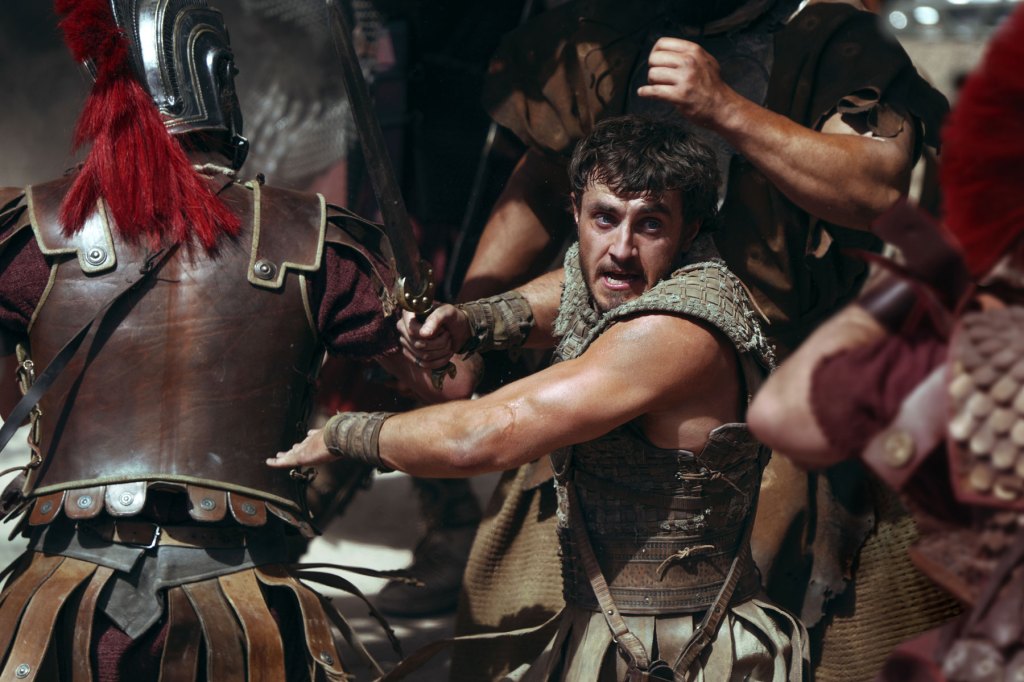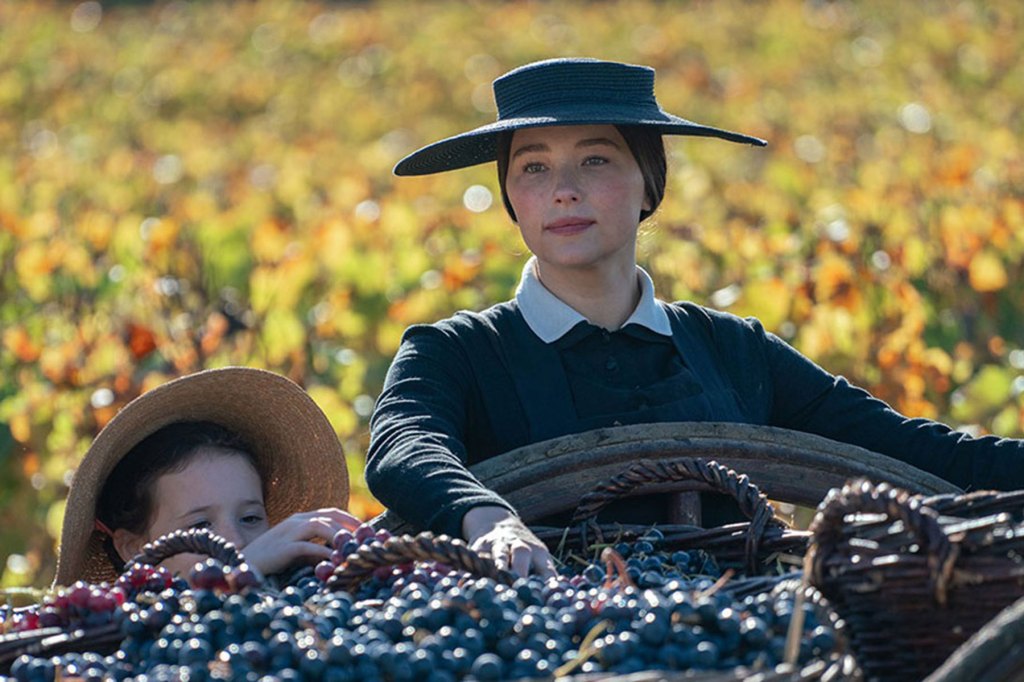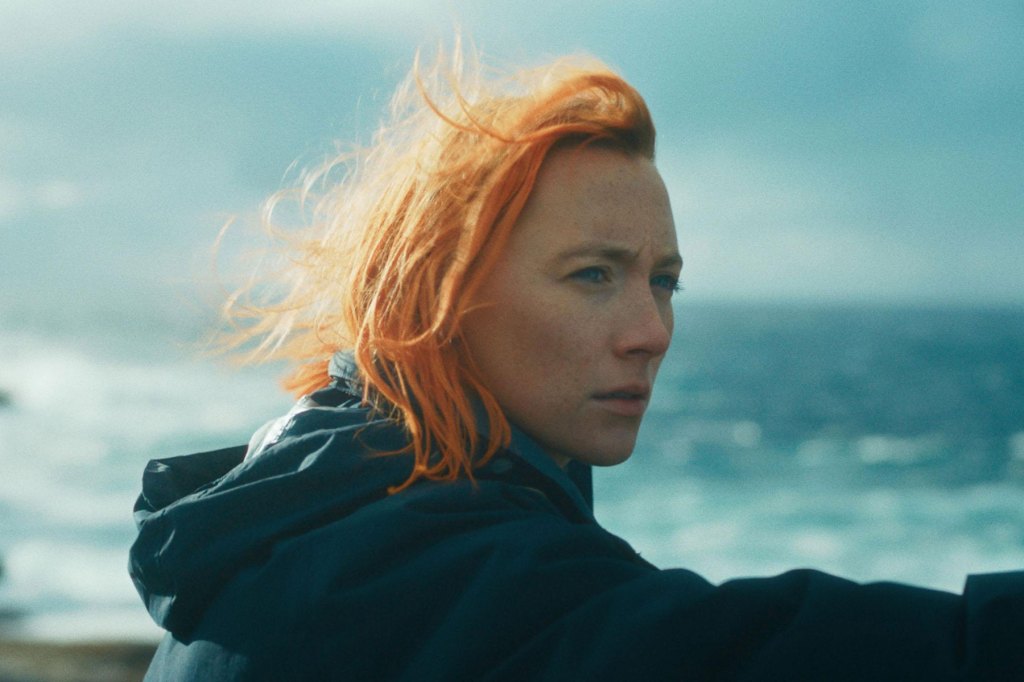Film review: Gladiator II
Enraged by the death of his wife, the slave gladiator Lucius enters the Roman arena hunting vengeance and glory in this sequel that sees Paul Mescal take on the legacy of Russell Crowe.

At a fort city on the coast of Africa in about 200 AD, a young couple kiss and play among the freshly washed sheets hanging from the line. It’s a movie set-up that signals trouble on the horizon. Cue the arrival of an attack armada that is so clearly CGI the boats glide like ghosts over the watery surface.
It’s not an inspiring start but once the Roman general Marcus Acacius (Pedro Pascal, perfectly cast) launches a maelstrom of arrows over the castle wall, and Lucius (Paul Mescal) responds by raining fireballs onto his boats, we remember why we’ve come.
The up-close violence is visceral and the body count is high. At the close of this frenzied battle, the men of fighting age are captured and taken to Rome. The newly enslaved Lucius is among them and he leaves behind the body of his slain wife, killed by Acacius’s arrow.
In Rome, the slaves are handed to a gladiator trader, Macrinus (Denzel Washington), who runs a personal stable of muscled fighters. Now the fun really beings because Macrinus, played with camp relish by a bejewelled Washington, is a toadying schemer at the corrupt court of the twin emperors Geta (Joseph Quinn) and Caracalla (Fred Hechinger), two madmen who delight in executions and gladiator fights.
The Roman empire is on its depraved last legs. When Marcus Acacius returns triumphant from the Africa campaign, he is told not to hang up his sword; now the emperors want him to conquer Persia and India. Geta has at least a slim hold on reality while his idiot brother Caracalla, in a Trumpian gesture, appoints his pet monkey head of state.
Into this cesspool comes the enslaved gladiator Lucius, whose first bout in the ring – against grinning mutant baboons – shows off his formidable skills. Macrinus sees greatness in Lucius and tells him to harness his rage because it could be a pathway to freedom. Lucius just wants the head of Acacius.
The plot of Gladiator II is convoluted but revolves around a failed palace plot by Acacius to assassinate the emperors, which puts him in prison while Macrinus’s power with the emperors grows. Meanwhile, Acacius’s wife, Lucilla (Danish actor Connie Nielsen from the original Gladiator), thinks Lucius might have something to do with the revered former gladiator Maximus Decimus Meridius (Russell Crowe).
Like so many fables, Lucius’s journey is that of a young man who must find his own path to glory, which gives director Ridley Scott just the platform he needs to incorporate moments of Gladiator I into Gladiator II. What a pleasure to see our Rusty announcing himself from the past as Maximus in a storyline that rises to the occasion.
Scott is a master of spectacle, and the choreography and arena fights are astonishing. After baboons, we get a warrior riding a rhinoceros and a watery arena swarming with great whites. In case you might be taking this even slightly seriously, Scott brings in Matt Lucas from Little Britain to host the gladiator games, a piece of casting that threatens to topple the show into farce.
Subscribe for updates
The psychological build-up lies in the match between Acacius, who knows the truth about his opponent, and Lucius, who wants to kill him. It is worth the wait but casting an actor with the bookish energy of Mescal as a gladiator remains a questionable choice. He does a solid job with what he is asked to do, which includes sword fighting and quoting slabs of Virgil, and put in the work to bulk himself up for the role. But Gladiator II lacks heart and serves as a reminder of what a marvel Crowe was as Rome’s Aussie gladiator.
Gladiator II is in cinemas now.

